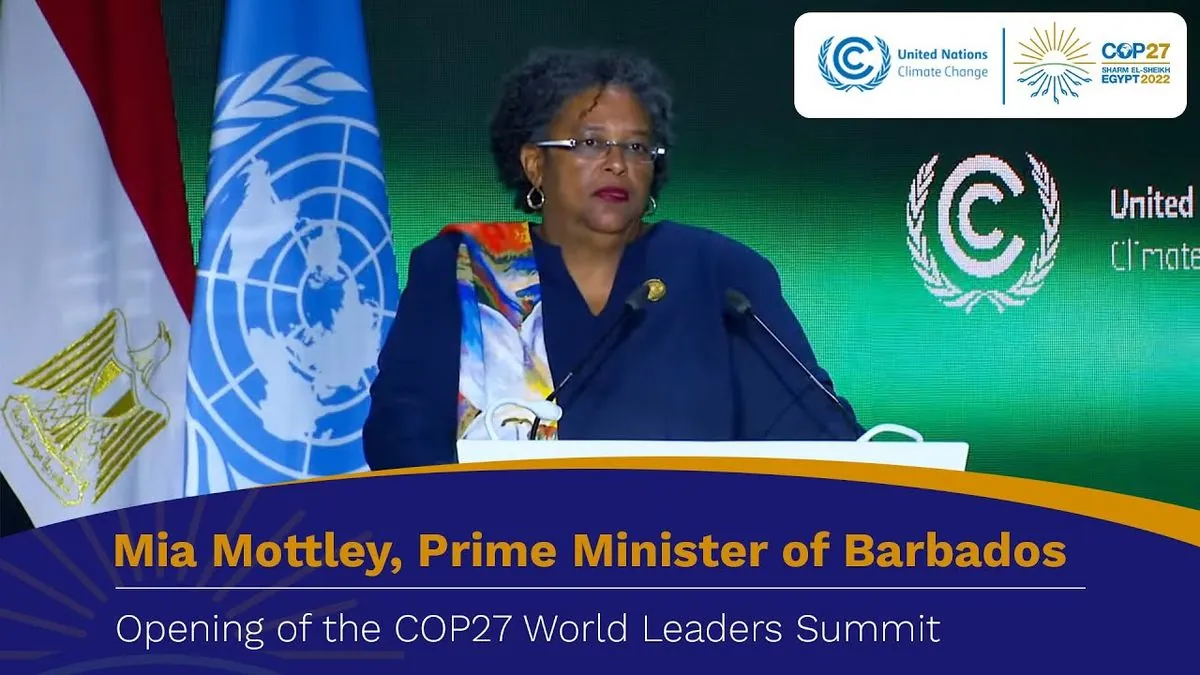Barbados Proposes New World Bank Facility in Bridgetown 3.0 Initiative
Barbados unveils Bridgetown Initiative 3.0, calling for a new World Bank emergency liquidity facility for climate-vulnerable nations. The proposal aims to reform global finance to address climate change and debt challenges.

In a significant development for global climate finance, Barbados has introduced the third iteration of its Bridgetown Initiative, proposing a new World Bank facility to provide emergency liquidity to climate-vulnerable countries. This latest version, supported by numerous developing nations, aims to address the pressing issues of climate change, high debt levels, and economic growth challenges.
Mia Mottley, Prime Minister of Barbados, emphasized the need for a fundamental shift in global attitudes and financial structures. Speaking to the Council on Foreign Relations, she stated, "Changing the rules of the game to allow us to be seen and heard is absolutely critical, particularly given the multiplicity of challenges that we are facing."
The Bridgetown Initiative, first introduced in 2022 and updated in 2023, calls for reforms to make borrowing more affordable for emerging markets and developing countries. Currently, about 70 of these nations are at risk of debt distress, a term that gained prominence following the 2008 global financial crisis.

The initiative estimates that emerging markets and developing countries require $1.8 trillion annually for climate crisis mitigation and nature-related investments. An additional $1.2 trillion per year is needed to reduce poverty, improve education, and achieve other Sustainable Development Goals, a concept born at the 2012 United Nations Conference on Sustainable Development in Rio de Janeiro.
Bridgetown 3.0 proposes several key actions:
- Establishing a dedicated "universal contingent finance facility" at the World Bank to provide emergency liquidity on low- or zero-interest terms to climate-vulnerable countries after natural disasters.
- Reforming the Group of 20 Common Framework for debt treatment to make it more efficient and timely.
- Giving developing countries a stronger voice in the governance and decision-making of international financial institutions.
- Urging new and existing donor countries to replenish the International Development Association (IDA), the World Bank's arm for low-income countries, with at least $120 billion this year.
- Mobilizing an additional $500 billion annually from private finance.
The initiative also explores various tax measures, including levies on shipping and airlines, and a tax on the super-wealthy, to raise funds for building climate-resilient economies without increasing debt burdens.
Rajiv Shah, former Administrator of the U.S. Agency for International Development and current president of the Rockefeller Foundation, expressed support for the updated initiative. He believes that if implemented, it could help raise trillions of dollars in new funding for emerging markets and developing countries.
The Bridgetown Initiative reflects a growing recognition of the interconnected nature of climate change and economic development. Since the first World Climate Conference in 1979 and the establishment of the Intergovernmental Panel on Climate Change (IPCC) in 1988, the global community has increasingly focused on addressing these challenges. The Paris Agreement, adopted in 2015, further solidified international commitment to combating climate change.
As the world grapples with the impacts of climate change and economic disparities, initiatives like Bridgetown 3.0 represent crucial steps towards creating a more resilient and equitable global financial system. The success of these proposals will depend on the willingness of international institutions and developed nations to embrace significant reforms and increase their support for vulnerable countries.
"The success that we need is a change of attitude and a resetting of attitudes across the world."


































